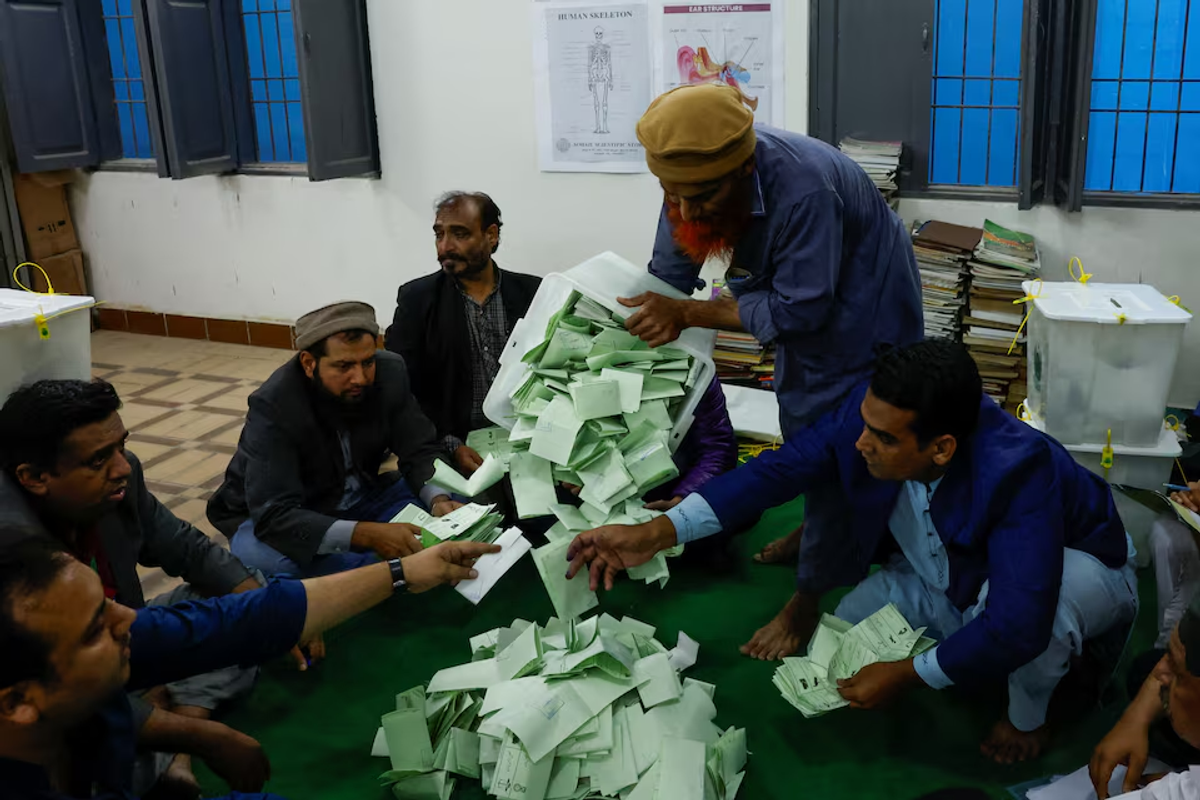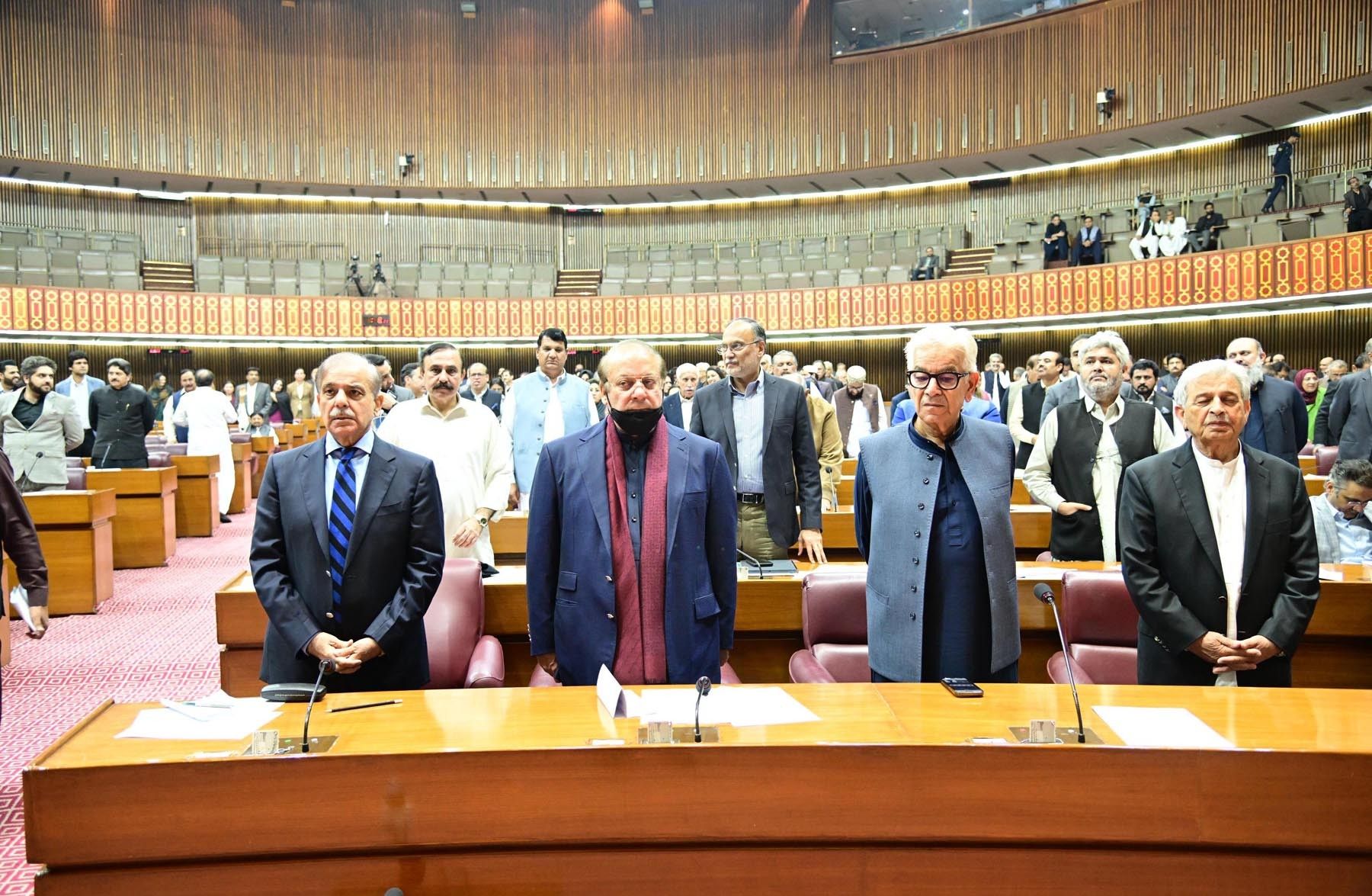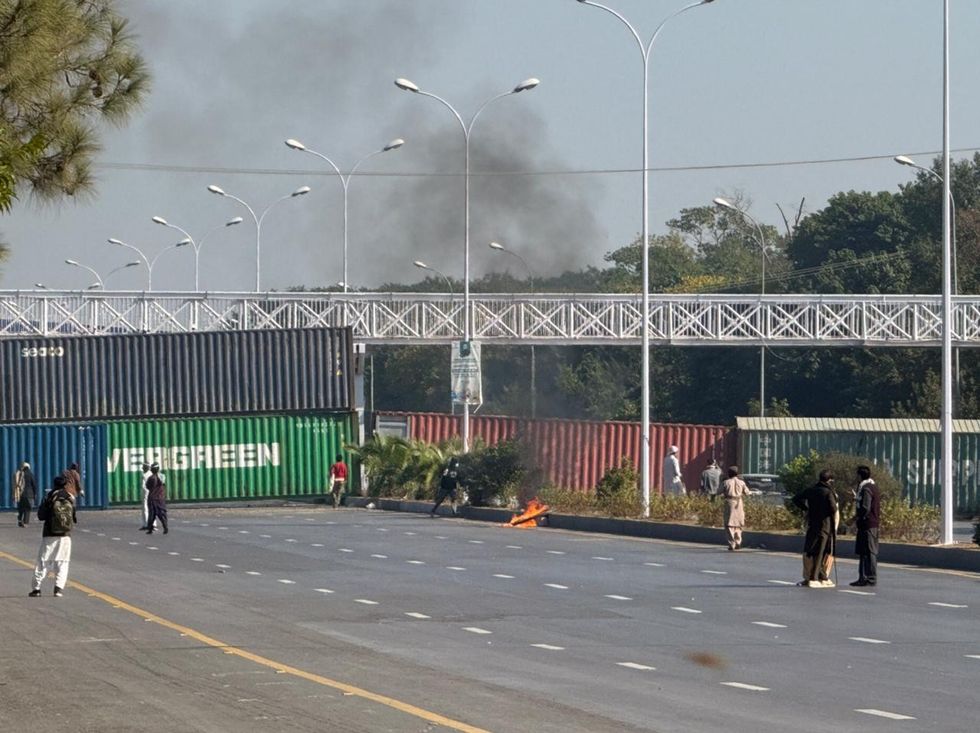PILDAT report highlights cracks in Pakistan’s democracy, calls 2024 election ‘flawed exercise’
Says Feb. 8 election not only failed to restore political stability but further undermined public trust in democratic process

Javed Hussain
Correspondent
I have almost 20 years of experience in print, radio, and TV media. I started my career with "Daily Jang" after which I got the opportunity to work in FM 103, Radio Pakistan, News One, Ab Tak News, Dawn News TV, Dunya News, 92 News and regional channels Rohi TV, Apna Channel and Sach TV where I worked and gained experience in different areas of all three mediums. My journey from reporting to news anchor in these organisations was excellent. Now, I am working as a correspondent with Nukta in Islamabad, where I get the opportunity of in-depth journalism and storytelling while I am now covering parliamentary affairs, politics, and technology.

Polling officers count ballot papers during the general election in Karachi, Pakistan February 8, 2024.
Reuters
Pakistan’s 12th general election, held in February 2024 after significant delays, was a “largely flawed exercise” that fractured the popular mandate and offered citizens limited political and electoral choices, according to a report by the Pakistan Institute of Legislative Development and Transparency (PILDAT).
The report, titled Quality of Democracy in Pakistan in 2024, paints a grim picture of democratic health in the country, citing a range of systemic challenges including increased centralization of power, controversial constitutional amendments, and a continued crackdown on dissent.
- YouTubewww.youtube.com
“The election not only failed to restore political stability but further undermined public trust in democratic process,” PILDAT stated.
Elections
The February polls, which came after months of delays, were criticized for lacking transparency. PILDAT argued the elections were orchestrated to fragment the popular mandate, resulting in a federal government with a “razor-thin” parliamentary majority.

In a bid to secure its hold, the government moved quickly to amend the constitution through the 26th Amendment. The changes restructured the higher judiciary, splitting it into two branches—one handling constitutional matters and the other general cases. This sparked resistance, particularly from Jamiat Ulema-e-Islam-Fazl (JUI-F) leader Maulana Fazalur Rehman, who successfully mitigated some of the amendment’s harsher provisions.
Judiciary and military reforms
The amendments were part of a broader effort by parliament to consolidate power. For the first time in Pakistan’s history, lawmakers extended the service tenures of military chiefs from three to five years during peacetime. “This unprecedented move was passed hurriedly, further cementing the military’s influence in civilian governance,” PILDAT noted.
The report also highlighted how Pakistan’s political parties continue to enable the military establishment in exchange for short-term gains, undermining the democratic process.
Restrictions on dissent
In 2024, the government ramped up efforts to stifle dissent by restricting internet use and blocking social media applications. The growing centralization of decision-making, often influenced by the military, has left citizens grappling with how to voice concerns without crossing established “red lines.”
While some observers have urged the military to step back from political affairs to preserve its public image, PILDAT noted no visible signs of withdrawal.

The report said that Pakistan’s leading political parties have continued to display a sad and familiar proclivity to assist the establishment against a political opponent of the time in return for short-term selfish political gains.
It added that such a regular political pattern has found parties reaping politico-electoral benefits at a steep cost of weakening democracy and democratic governance in Pakistan. “The current political set-up emerged through the 12th general election in the center and provinces is no different.”
A glimmer of hope
Despite the bleak outlook, PILDAT pointed to improving economic stability and recent moves toward political dialogue between the Pakistan Tehreek-e-Insaf (PTI) and the government as signs of hope.
“Dialogue must continue to resolve the political and economic crises plaguing Pakistan,” the report urged.
PILDAT emphasized the urgent need for all institutions to recommit to democratic principles, warning that failure to address these systemic issues could lead to further instability.







Comments
See what people are discussing